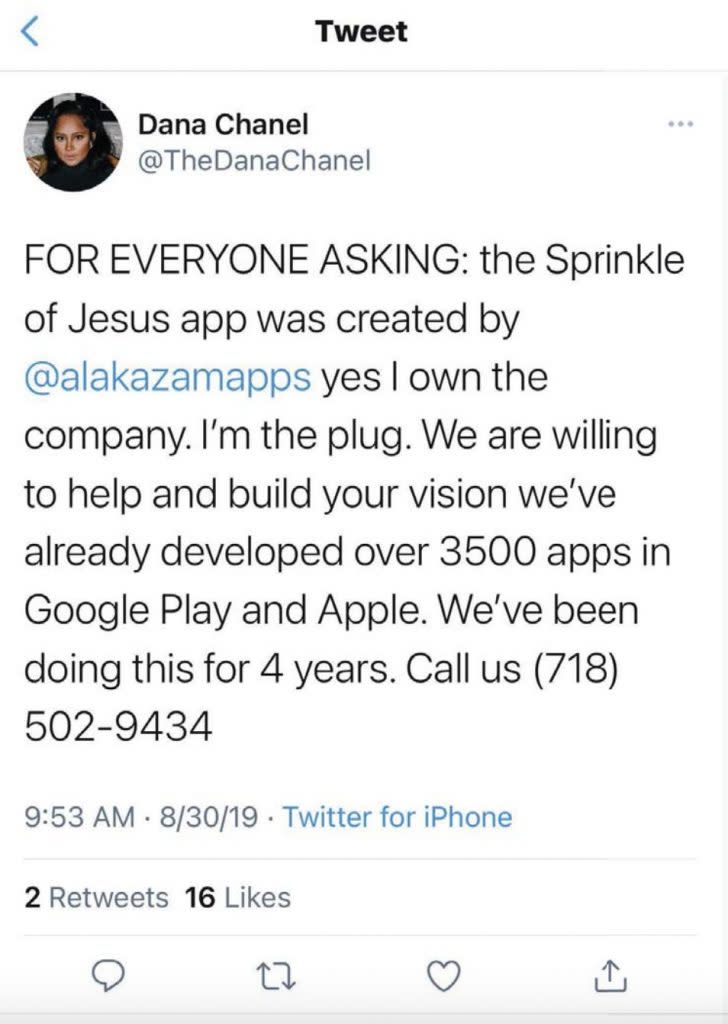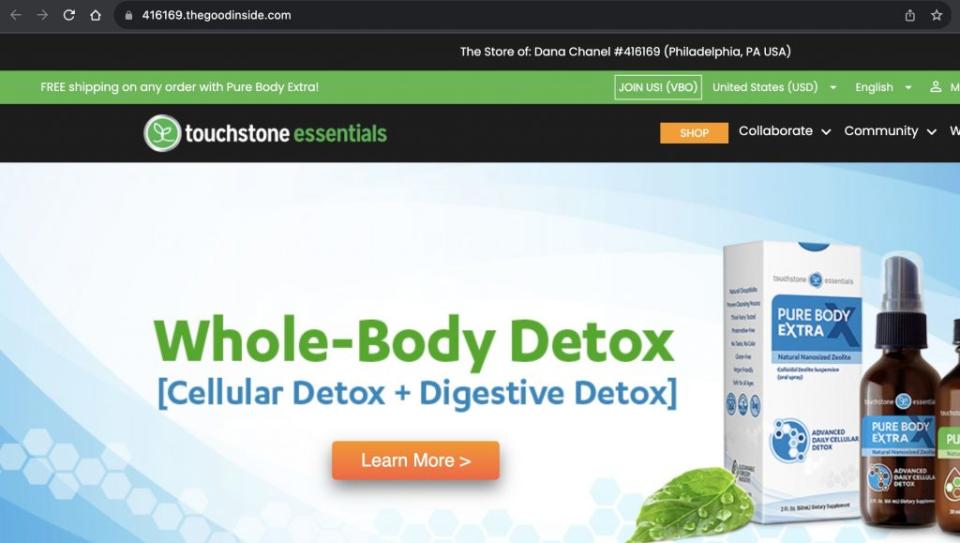Christian influencer accused of scamming customers settles lawsuit, ordered to pay more than $87,000
A Philadelphia influencer who has described herself as a “Christian entrepreneur” has been ordered to pay more than $87,000 to dozens of clients who claim they were scammed by her.
Casey Olivera, more commonly known online as Dana Chanel, was accused of endorsing Defendant Credit Exterminators, a credit repair business, and Alakazam Apps, a mobile app developer, to her followers. She was listed as a co-owner with her father, Nakia Rattray, and her sister, Cassandra April Olivera, in both companies.
Pennsylvania Attorney General Michelle Henry announced the settlement on Sept. 12 and said the defendants must pay $87,269.91 in consumer restitution, $31,000 in legal fees and $6,000 in civil penalties. There is also an additional $55,000 in civil penalties that is suspended as long as the family does not exhibit “deceptive conduct” in any current or future businesses.
Casey Olivera has over 1 million Instagram followers on her personal account and is the founder of Sprinkle of Jesus, a Christian mobile app that she described in 2020 as being the largest online ministry in the world, with 5 million users. (The Sprinkle of Jesus Instagram has 130,000 followers.)
She also started Curl Bible, a hair and skin care brand, which, according to its Instagram bio, has since “closed its digital doors.”
In a press release from November 2021, when the lawsuit was filed, then-Pennsylvania Attorney General Josh Shapiro wrote, “Dana Chanel built a following online by presenting herself as a black woman-owned small business success story. She advertised the products of her companies as a way for other black small business owners to achieve what she did. Then, she ripped off the same community she claimed to care about.”
According to the lawsuit filing, which is public record, Defendant Credit Exterminators (rebranded at one point as Earn Company) customers reported to the state of Pennsylvania that they each paid around $2,000 for services the company advertised, including credit coaching and monitoring and the resolution of delinquent credit accounts. According to the clients who filed the report, they received neither those services nor a refund.
Court documents show that Defendant Credit Exterminators had a “VIP Plan” for $300 a month — not including the $20 monthly shipping and handling fee or the $80 one-time setup fee — that was advertised as a “we do it for you” option.
But investigators found that Defendant Credit Exterminators instructed customers who bought in to the VIP Plan to sign a contract that “did not obligate the company to provide” any of the “services advertised as part of the VIP package.”
Olivera leveraged the success of Sprinkle of Jesus to advertise Alakazam Apps, which also charged up to $2,000 per person to create custom apps for clients who included small business owners and nonprofit executives. Court documents included a screenshot of a post Olivera made on X (then known as Twitter) in 2019 confirming that her successful Sprinkle of Jesus app was built using Alakazam Apps.

In a 2019 Forbes profile, Olivera said she bought the development company that built Sprinkle of Jesus and renamed it Alakazam so she could “create mobile apps for small businesses.”
“From restaurants to churches, we’re helping small businesses go digital at an affordable rate,” Olivera said in the interview. “To create your own mobile app, it’s $20-$50 to $100,000. We can do that at a fraction of the cost.”
Customers who paid for Alakazam’s services prior to August 2020 told the court that they discovered charges from Sprinkle of Jesus Corp. on their credit card billing statements in the amount they’d agreed to pay to Alakazam for app development costs and hosting fees.
Some clients received invoices that said the monthly deposits they were paying — which they thought were going toward development and hosting fees — were actually for the cost of a “business marketing manual.”
“Consumers who were invoiced for a business marketing manual were not seeking to purchase this manual and were not aware at the time of purchase that Alakazam would allocate their deposit payment toward this product,” the lawsuit said.
Other customers who had committed to the monthly fees either never received a finished mobile app from Alakazam or received an app that they felt “lacked a minimum level of functionality necessary to give the product any value to the consumer.”
In an Instagram video from Nov. 10, 2021 — about a week after the lawsuit was filed — Olivera and her husband, Donnell Morris, denied the lawsuit claims.
“We are currently dealing with a civil lawsuit and deny any and all claims that have been made,” Morris said. “To all of our supporters and customers, I’m asking that you stand at this time, acknowledge and vouch for the fact that we have positively impacted your lives.”
In the video, Olivera announced the couple was starting a Black Business Review Board, which she said would fight for entrepreneurs and consumers. It’s not immediately clear what happened with the board or whether it was ever formally launched.
Within the last year or so, both Olivera and Morris have pivoted their social media content to be wellness- and family-focused. But the couple hasn’t fully stayed out of controversy.
Olivera has several posts touting a “natural heavy metal detox” spray that she claims helped her 2-year-old son with his language development and that she says she’s now giving her youngest daughter, too.
In the Instagram grid posts, there isn’t a hashtag for “ad” or “partner,” and Olivera does not include a link or a name brand. But in the “LEAD DETOX” highlight on her profile, which features two Instagram Story slides from three months ago, she includes a link to buy the spray. While she does not explicitly state whether she’s advertising the spray for money or making a commission off followers who buy it, her name appears at the top of the website when her link is used.

The Centers for Disease Control and Prevention says children who are most likely at risk for lead exposure live in a house or building built before 1978, are from a low-income household or spend time with someone who works with lead. The CDC does not list any “detox sprays” as approved follow-up actions that parents should take if their child is confirmed to have been exposed to lead.
As of reporting, Olivera, her father, her sister and her husband have not publicly commented on the lawsuit settlement.
In The Know by Yahoo is now available on Apple News — follow us here!
The post Christian influencer accused of scamming customers settles lawsuit, ordered to pay more than $87,000 appeared first on In The Know.
More from In The Know:
'Anti-glasses' influencer defends herself against backlash after TikToker infiltrates her class
Creator claims she felt 'scammed' after buying a beauty product from the TikTok Shop
TikTok scammer who faked her cancer diagnosis, stole money from donors pleads guilty


